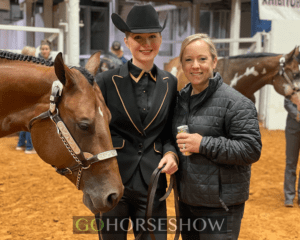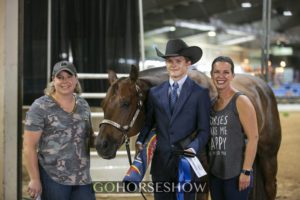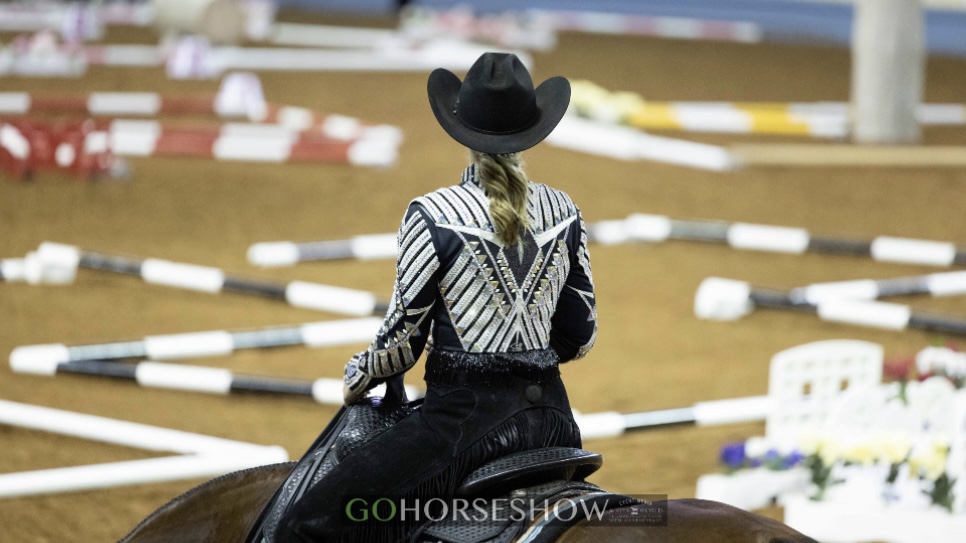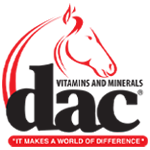Mistakes at a show are practically inevitable. Even the professionals make mistakes. As Oscar Wilde once said, “Experience is merely the name men give to their mistakes.”
The key to improvement, both in and out of the pen, is learning to avoid making the same mistake in the future. However, as with many aspects of horsemanship, avoiding repeated mistakes is often easier said than done.
We spoke with leading trainers Jenell Pogue and Shannon Walker to learn their tips for helping clients avoid repeating the same mistakes.
School When Appropriate
Riding a horse successfully involves teamwork. And while exhibitor accountability is key to long-term improvement, sometimes the horse makes a mistake. In these cases, it is imperative to correct the mistake in the ring (if the situation is appropriate for it).
 Specifically, Walker is a big proponent of taking horses to smaller, low-pressure shows prior to expecting them to perform at the highest level. She does this because mistakes are inevitable, particularly early in the season or early in a partnership, and these shows are the perfect venue for schooling.
Specifically, Walker is a big proponent of taking horses to smaller, low-pressure shows prior to expecting them to perform at the highest level. She does this because mistakes are inevitable, particularly early in the season or early in a partnership, and these shows are the perfect venue for schooling.
“For example,” Walker explains, “if you are performing a showmanship pattern and walk off hard and your horse breaks into a trot, this is the perfect opportunity to stop, back them up, and walk off hard again to teach them to wait for the cue.”
Walker instructs her clients to, “Go back and fix the issue without attacking it. You don’t want to turn a mistake into something that becomes a major source of anxiety for you and your horse. Don’t get too much in your own head about an issue, but don’t avoid the issue either.”
She adds, “Schooling, when done correctly and appropriately, is your biggest ally in preparing for top-level showing.”
Prepare
Practice doesn’t make perfect if you are reinforcing a mistake. Perfect practice, on the other hand, makes perfect.
Pogue actually says she finds mistakes beneficial to growing teams because they highlight what areas need work. “The biggest lessons you can learn are from mistakes in the pen or in practice. These mistakes will help you learn where to put your focus,” Pogue clarifies.
“You want to make your execution at home as close to perfect as possible so that becomes habit in the ring. Homework is your biggest advantage. Work on your skills, your connection, and minimizing or eliminating those problem areas,” explains Jenell.
Confidence
You have to be able to move on from a mistake in the pen and this often requires a confident mindset.
Both of our experts remind us that mistakes often feel way worse when you’re showing than how they look to an audience. In fact, sometimes judges miss a mistake altogether – if you work through it with confidence.
 Sometimes mistakes can have a snowball effect that leads to more mistakes and the pattern or ride end up going off the rails. According to Pogue, “Often the difference between a novice and great Level 2 or 3 rider is the ability to move forward from a mistake without letting it ruin your go.”
Sometimes mistakes can have a snowball effect that leads to more mistakes and the pattern or ride end up going off the rails. According to Pogue, “Often the difference between a novice and great Level 2 or 3 rider is the ability to move forward from a mistake without letting it ruin your go.”
“Having the confidence to know you will make mistakes will help you prepare for how to help your horse through it,” Shannon adds. “If you know your horse and where they struggle, you can develop a plan for minimizing those risks and that plan will help you have confidence in the ring. Learning how to fix a mistake as you go is the hallmark of an experienced exhibitor.”
Mindset
While confidence deals with your attitude in the ring, having a humble mindset outside of the ring will help you deal with mistakes.
Specifically, both of our experts emphasize that, to move on from a mistake, the exhibitor needs to be accountable and willing to learn. It can be easy to blame the horse, or the judges, or things happening outside the ring for an error or bad go. However, the exhibitor is the captain…and sometimes that means you need to be willing to admit your faults and go down with the ship.
Pogue reminds, “Excuses don’t get you better. Throw your five–minute funeral, be upset about the mistake, and then worry about fixing it. What went wrong? How can you avoid that or minimize that in the future? This is all a part of the experience and if you miss a chance to learn from an error, you will never be great.”
“Remember, everything can be fixed if you’re willing to take accountability and work at it. You may never totally eliminate a problem area, but you can certainly improve on it,” Walker encourages.
Take Risks
Both of our experts agree that, if your response to a mistake is to always be conservative, you will likely come away with the same result as if you took some risks and made some mistakes. Success often favors the bold.
Walker believes that riders who are willing to take risks, make mistakes, and learn from those mistakes will find themselves on a faster upward trajectory than those who fear mistakes and always play it safe.
“Go at the pace you want to show at,” Walker advises. “If you are aiming for great successes at high levels, it won’t serve you to aim for the middle of the pack. Great risks have great rewards. You may not win every time, but you are far more likely to win at some point.”
***
In closing, Pogue reminds us, “We all make mistakes, but how you come back from them is the difference between being good and being great.”









